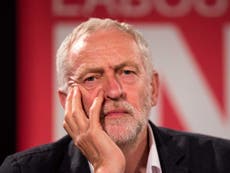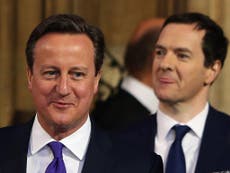The problems with the Government’s boundary review are well-documented: constituencies will be based on registered voters rather than their actual population, which penalises low income areas, places where people rent, and places with young populations. The Government has refused to base its review on the most recent electoral register, instead taking one from before the EU referendum, when over one and a half million people registered to vote. The size of our elected legislature is shrinking, while our unelected one continues to grow, thanks to David Cameron’s resignation honours list.
These are all valid criticisms, but there’s actually a bigger issue that’s barely been commented on: the fact that boundary reviews are important at all.
Our electoral system separates votes up into local constituencies, and whoever wins the most votes in each constituency wins a seat. Whichever party ends up with the most seats across the country forms the government.
Because of this, where constituency lines are drawn really matters. In a close race, taking one area from one constituency and putting it into another can change who wins, without a single vote being cast differently. In cases like these it is simply a fact that the boundary commission is deciding the outcome of the election, rather than voters.
Consider as an example poor David Nuttall, the Conservative MP for Bury North. He narrowly won his seat last time by 18,970 votes to 18,592. The boundary commission has decided to leave his constituency alone, except for adding one large, strongly Labour-voting area to it. Nuttall could be a great MP, but his seat has just had a possibly fatal infusion of Labour voters, stacking the odds against him in 2020.
Meanwhile, imagine the Commission had instead decided to add a Conservative-voting village to his constituency from its other border: it would suddenly have become very difficult to oust him, simply because of geography. Both decisions would have been equally as arbitrary. Writ large across the country, decisions like this make the difference between a hung parliament or a majority. Is this really how we want the composition of our legislature, and thus our government, and thus large parts of our lives, to be decided?
It may surprise you quite how arbitrary a boundary’s commission’s decisions are. Delve into the reports and the commissioners spell out how they move wards around, but there are often multiple ways to achieve the same result. Move this village here to compensate for a loss there, ah, move another here, split this smaller constituency four ways… there, that looks about right.
Boundary commissions are nominally independent of the Government but to assume this means governments of the day have no influence is naïve. We all saw how the Lib Dems and Tories used this political football in the previous Parliament – Nick Clegg’s party simply refused to vote for it in retaliation for the Tories not backing House of Lords reform. Meanwhile Labour didn’t carry out a review, to their advantage, for a long time while in government. The Tories’ eventual review has, as outlined above, been very much conducted on their terms.
It doesn’t have to be like this – and in most places, it isn’t. First Past the Post, our electoral system, is one of the few systems that actually suffers from a reliance on arbitrary borders drawn up by commissions. Most countries in Europe use electoral systems where the final results of seats are broadly proportional to the votes cast, so changing constituency borders doesn’t really affect the results.
Look at the system used for electing the Scottish Parliament: yes, there are constituencies, set by a boundary commission. Everyone has their own MSP tied to their local area. But a top-up system drafts in additional MSPs to represent regions to make sure the overall result reflects the votes cast. Fiddling with the boundaries can’t affect the national result because the overall result will always be basically proportional.
There is a long list of arguments for a proportional electoral system. Let’s add “general elections won’t be decided by arbitrary lines on the map” to it.






Join our commenting forum
Join thought-provoking conversations, follow other Independent readers and see their replies